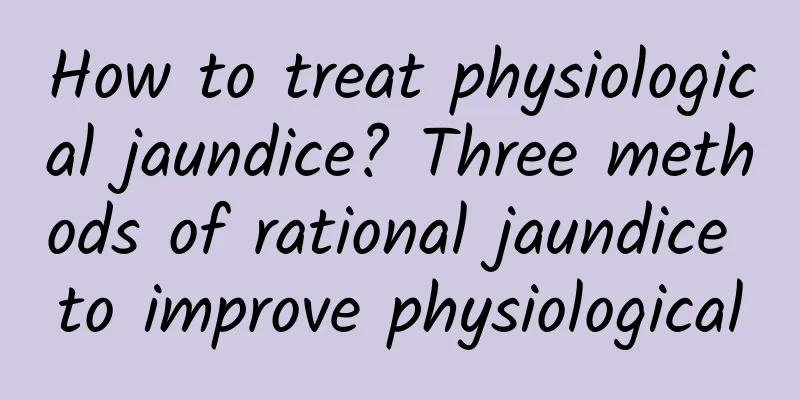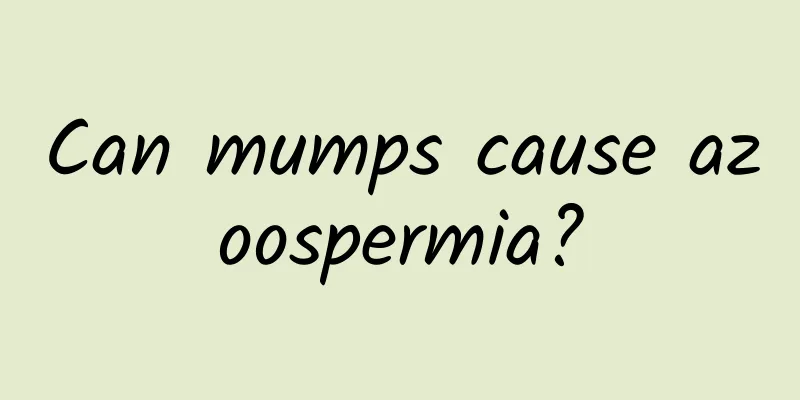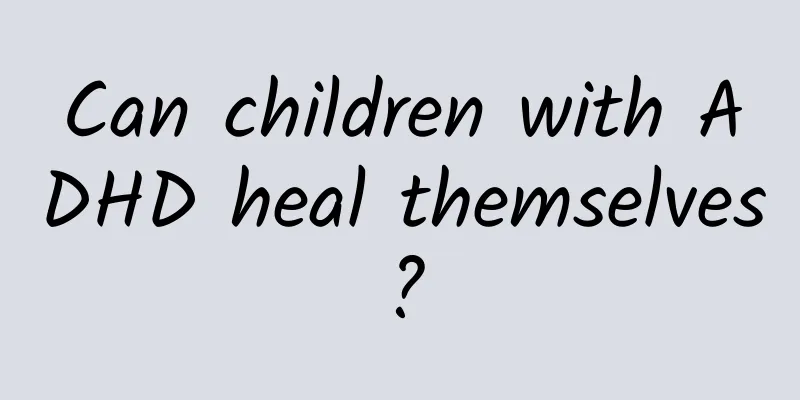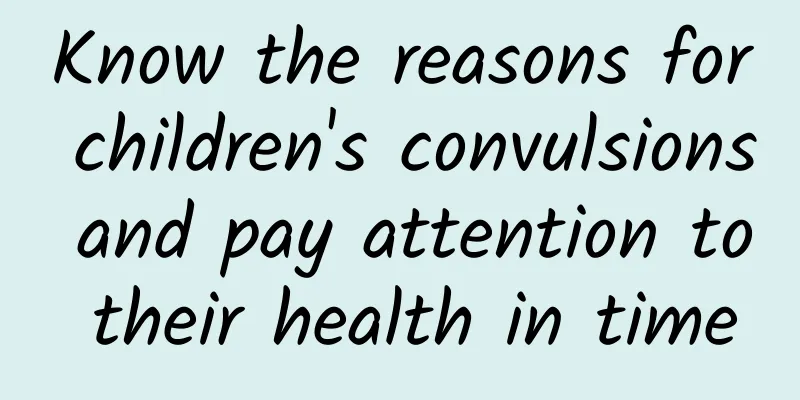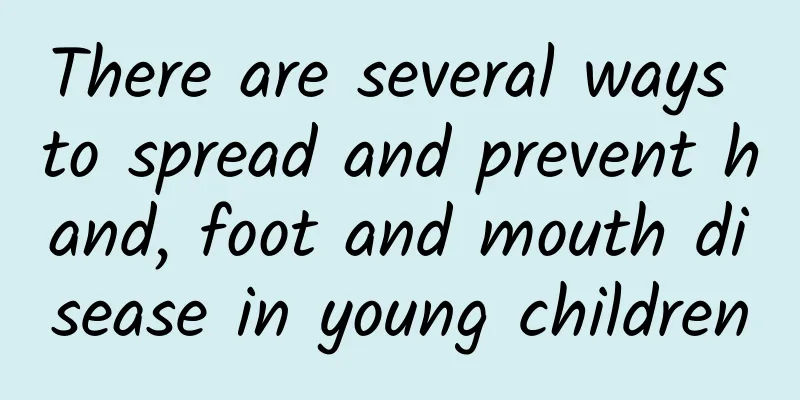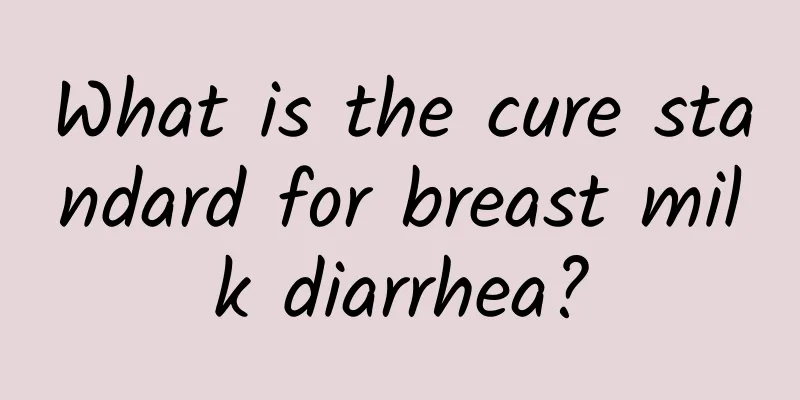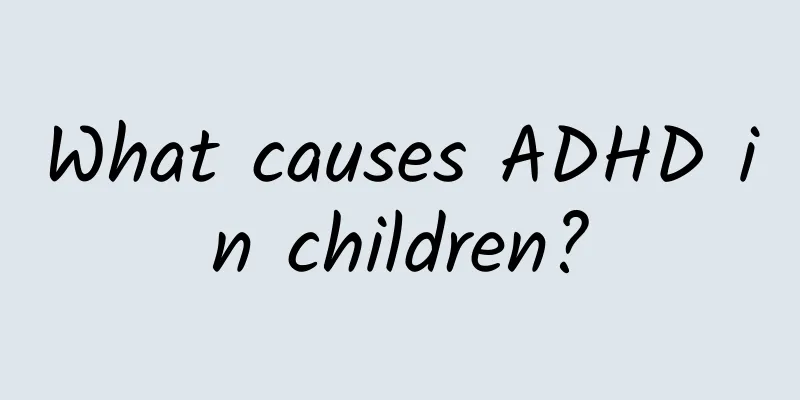What are the common causes of hand, foot and mouth disease in babies?

|
Hand, foot and mouth disease in babies is generally caused by enterovirus infection, and the main pathogenic viruses include Coxsackievirus A16 and enterovirus 71. Hand, foot and mouth disease is highly contagious, and the main route of infection is through saliva, secretions, feces or contact with objects containing the virus. Parents need to pay special attention to the baby's hygiene to prevent the spread of the virus. 1 Influence of genetic factors Hand, foot and mouth disease itself is not a hereditary disease, but the strength of the baby's immune system may be related to genetics. For example, if one of the parents has a weak immune system or immunodeficiency, the baby may be more susceptible to the virus. Babies who are born prematurely or have a low birth weight have not yet fully developed immune function and are also more susceptible to viruses. 2 The role of environmental factors The peak season for hand, foot and mouth disease is usually in summer and autumn, because the virus is more likely to reproduce in hot and humid environments. Crowded places such as nurseries and kindergartens are also high-risk places for virus transmission. Babies who are in close contact with other sick children, or come into contact with contaminated toys, clothing, tableware, etc., may increase the chance of infection. 3. Susceptibility caused by physiological factors Younger babies, especially those under 5 years old, are more likely to get hand, foot and mouth disease because their immune systems are not fully developed and their resistance to enterovirus is weak. If babies usually have a monotonous diet and lack vitamins and minerals, their immune function may also decline, thereby increasing the risk of infection. 4 Pathological factors and specific viral infections Hand, foot and mouth disease is mainly caused by coxsackievirus A16 or enterovirus 71, of which enterovirus 71 is more likely to cause serious complications such as encephalitis and pulmonary edema. Other less common pathogenic viruses such as coxsackievirus A6 and A10 may also cause similar symptoms. The symptoms caused by different viral infections vary in severity, but generally manifest as fever, oral ulcers, and rashes around the hands, feet, and mouth. How to treat and care 1. Drug treatment: Some symptomatic medications can relieve your baby's discomfort, such as ibuprofen for fever or throat spray for a sore throat. If you have severe oral ulcers, you can use local anesthetic gel to relieve pain, but you must follow your doctor's advice. If severe HFMD occurs, such as neurological symptoms, antiviral medication or hospitalization may be required. 2. Home care: Let your baby rest more and try to avoid crowded places, especially during the peak infection period. Provide your baby with warm, cool and easy-to-swallow food, and avoid spicy or overly hot food that may irritate the ulcer area. Keep the environment clean and wash toys with warm soapy water after use to avoid secondary contamination. 3. Strengthen preventive measures: Wash your baby's hands frequently with soap and water, especially before meals and after using the toilet. Regularly disinfect your baby’s daily necessities, such as bottles, tableware, toys, etc. Coxsackievirus type 71 vaccine is currently an effective means of preventing hand, foot and mouth disease and can be arranged in a timely manner according to the baby's vaccination plan. Parents should pay attention to their baby's daily health and take their baby to see a doctor as soon as possible if they have a fever or a rash in the mouth, hands or feet. At the same time, developing good hygiene habits is the key to long-term prevention of hand, foot and mouth disease. |
<<: Do symptoms of hand, foot and mouth disease in adults indicate poor immunity?
>>: What porridge can cure children's cough quickly?
Recommend
Does pseudojaundice need to be treated? Use these few methods to relieve pseudojaundice
If people eat a lot of carotene-rich foods in the...
What are the preventive measures for early stage kidney disease in children?
According to relevant statistics, many children s...
Is pneumonia hereditary in children?
Pneumonia is not a hereditary disease, but a comm...
What is DMD
DMD is a disease called Duchenne Muscular Dystrop...
Can hand, foot and mouth disease be transmitted to adults? There is a small probability. Pay attention to the transmission route to prevent it.
Regarding hand, foot and mouth disease, the child...
What are the examination items for patent ductus arteriosus?
Patent ductus arteriosus is a congenital heart di...
Where is the best hospital for acute laryngitis in children?
Acute laryngitis in children is relatively rare i...
What to do if your baby has eczema on his face? What are the treatments for eczema on your baby's face?
When eczema appears on the baby's face, the m...
Can I wean my baby off when he has a cold? It is not conducive to recovery
Many people are concerned about whether the baby ...
Drug treatment of patent ductus arteriosus in newborns
Patent ductus arteriosus (PDA) is a common heart ...
What are the methods to judge whether a baby has indigestion? What are the symptoms of indigestion in a baby?
A baby's poor appetite and indigestion will h...
Is childhood eczema hereditary? The probability of inheritance is as high as 50%.
Childhood eczema may be inherited, but genetic fa...
What to do if your child has a severe cough
Children's resistance is much weaker than tha...
What is the reason for the baby to have diarrhea after eating? What is the reason for the baby to have diarrhea after eating? How to regulate it?
Most babies have diarrhea after eating anything b...
How to treat hernia in children? Doctors point out the treatment and care methods of hernia in children
Hernia in children mainly occurs in the inguinal ...


